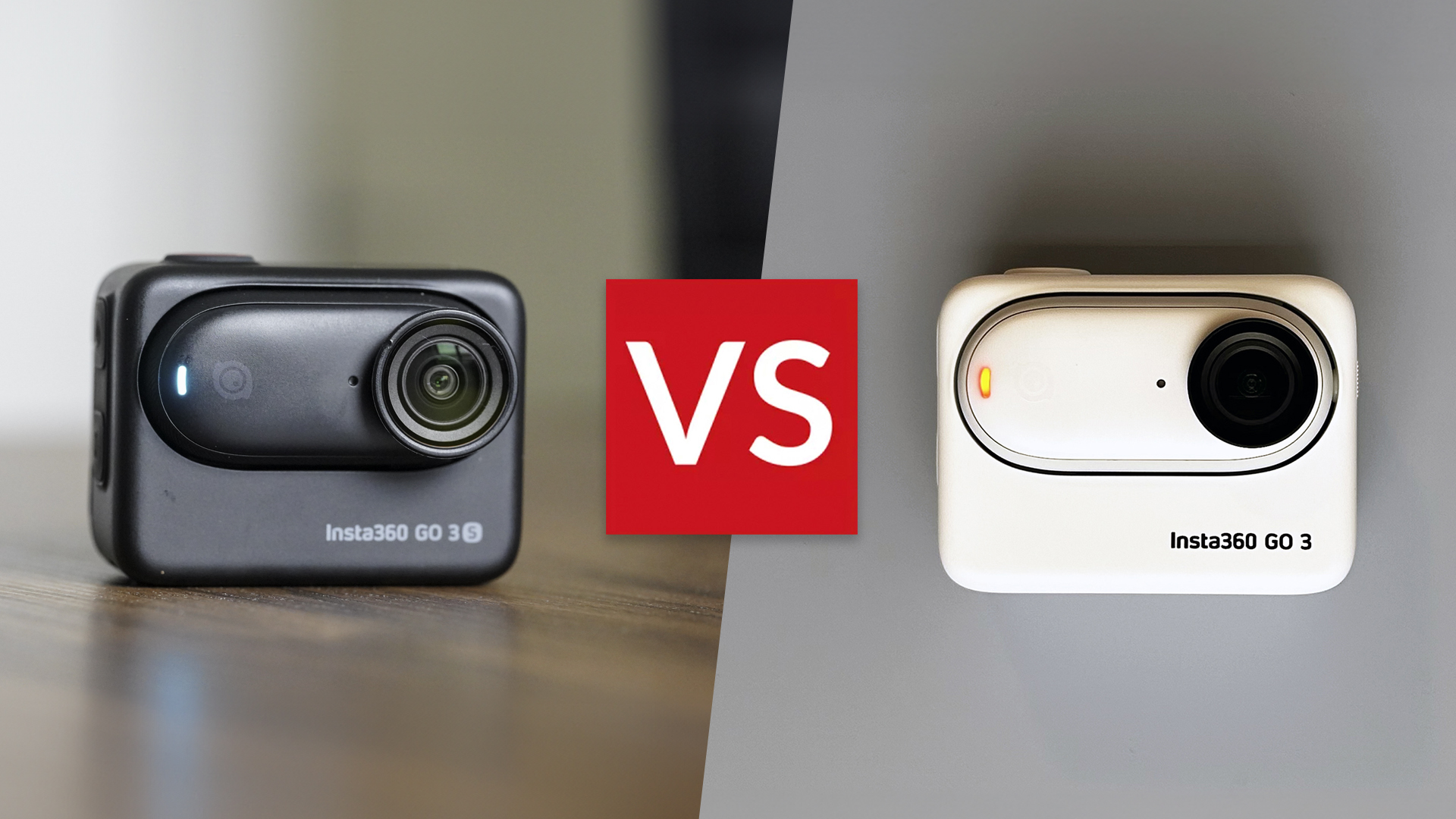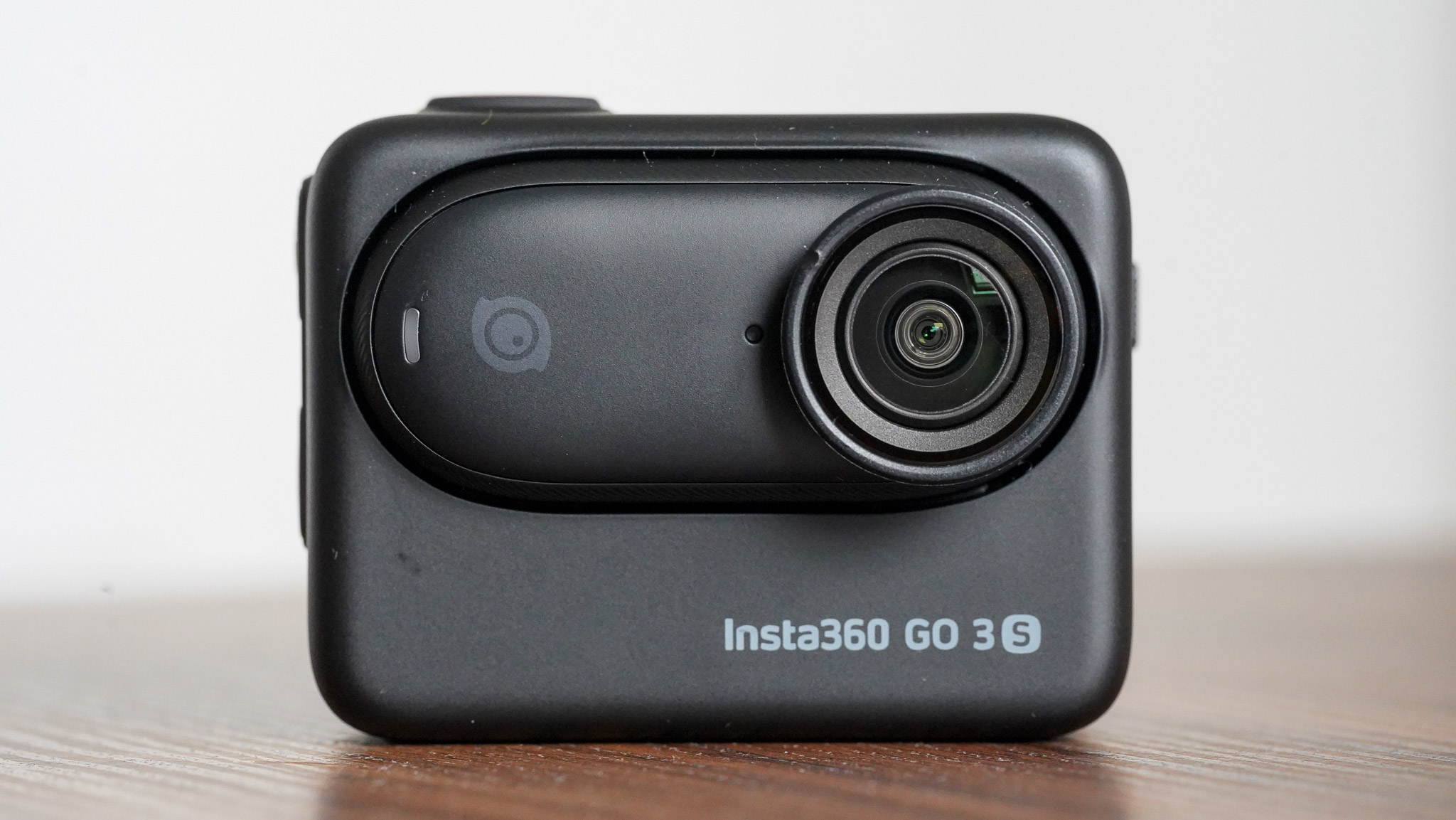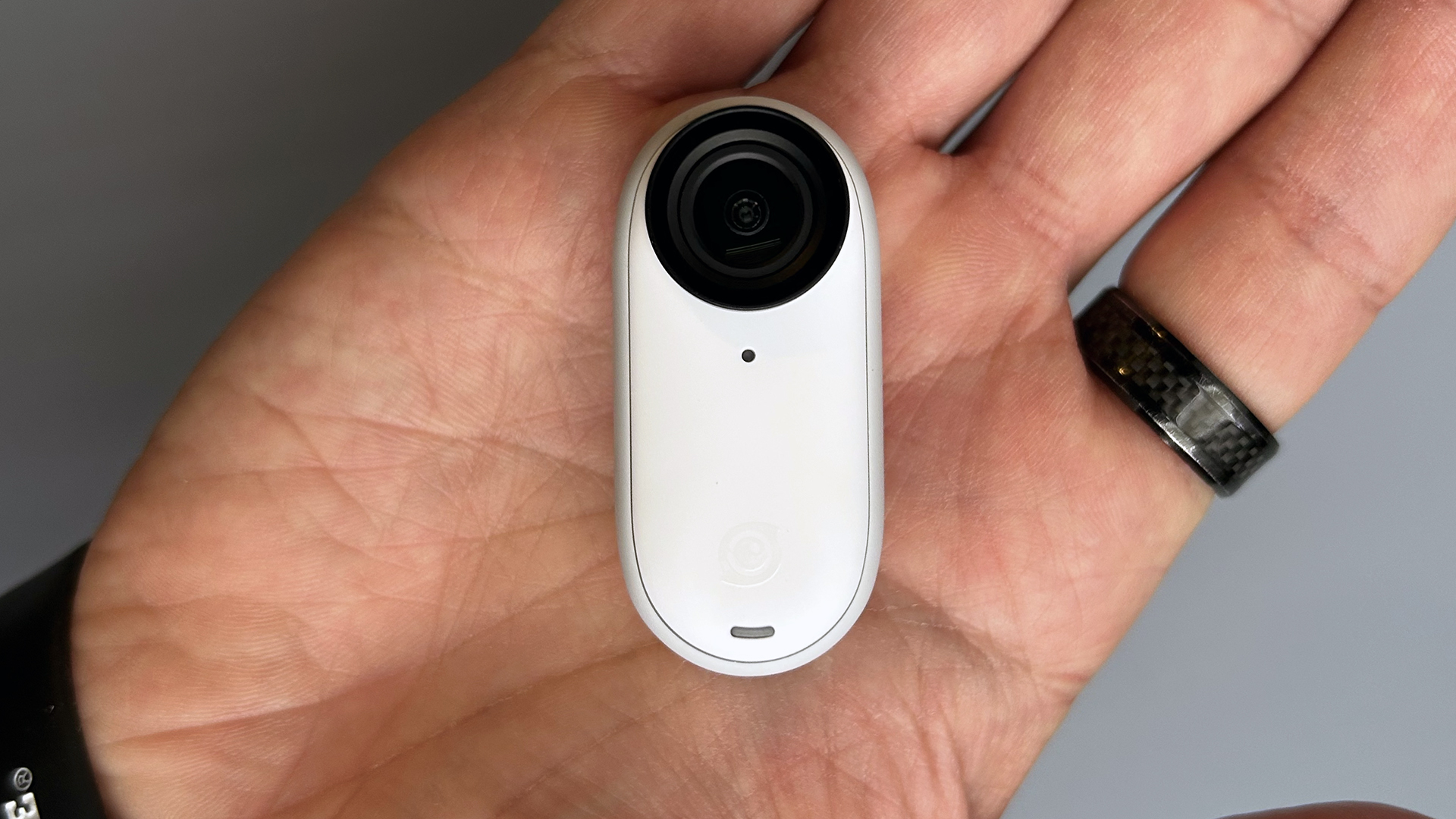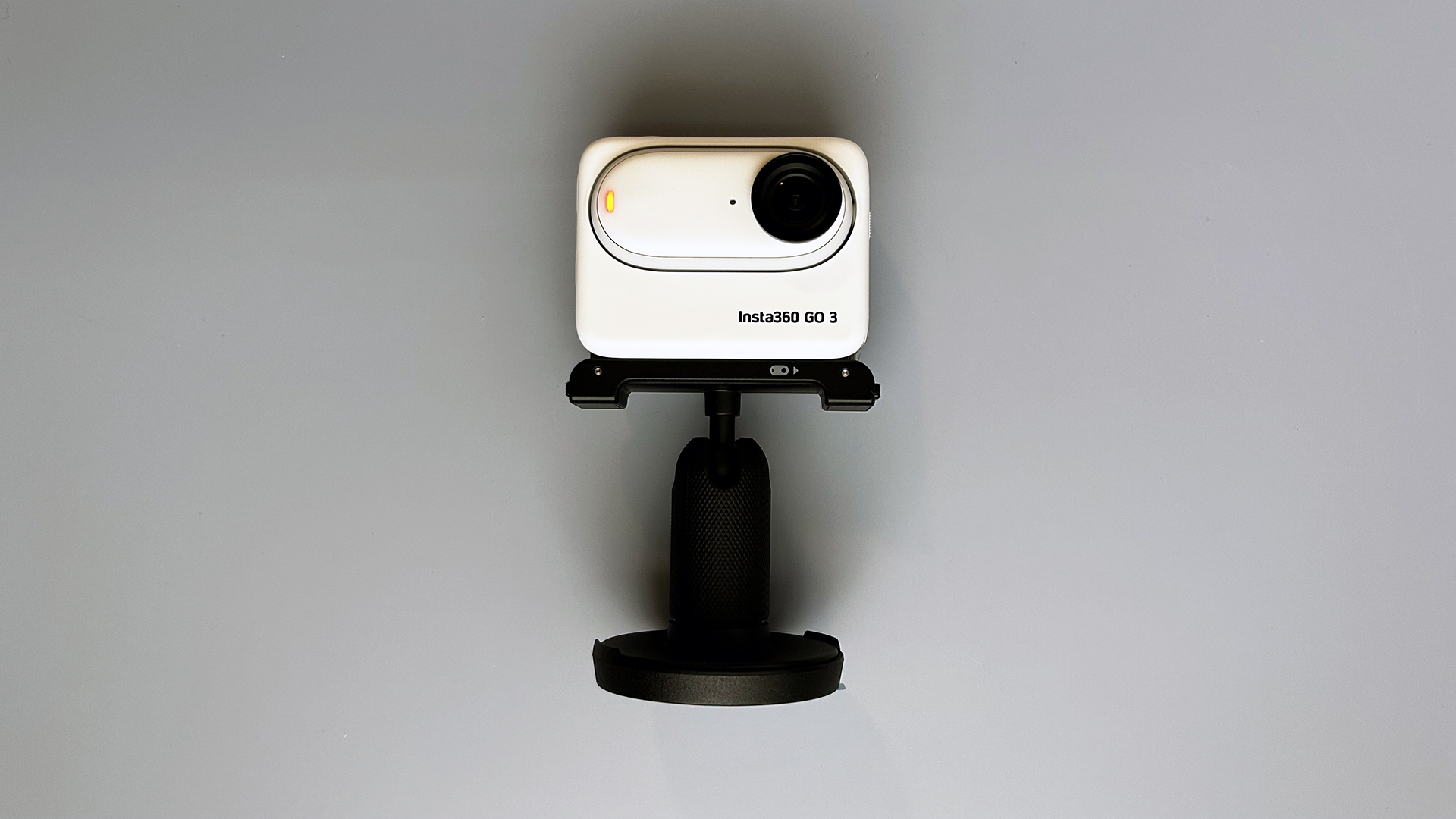Insta360 GO 3S vs Insta360 GO 3: worth the upgrade?
We tested the latest and greatest tiny action camera from Insta360 to see how it stacks up against its predecessor


Get all the latest news, reviews, deals and buying guides on gorgeous tech, home and active products from the T3 experts
You are now subscribed
Your newsletter sign-up was successful
Insta360 might be best known for its 360-degree action cameras, but its compact GO series is also beloved by content creators and pet owners alike. With the launch of the new Insta360 GO 3S, one wonders if it is good enough to warrant an update from the Insta360 GO 3. We compared the two to find out.
Launched in June 2023, the Insta360 GO 3 introduced a larger charging pod and increased the resolution to 2.7K. It also added another microphone for better sound recording performance and made the camera pod slightly more waterproof.
Announced almost exactly a year later, the new Insta360 GO 3S ups the game once more with a maximum 4K video resolution, the ultra-wide MegaView, Interval Video mode, added gesture control, and more.
Are the updates enough, though, to entice people to upgrade? Which model should people who have never tried these tiny action cameras choose? It's time to test the two cameras to determine who wins the battle of the best action cameras (well, the small variety).
Insta360 GO 3S vs Insta360 GO 3
Price and availability
The Insta360 Go 3 was launched in June 2023 with prices from $400/ £400/ AU$699 for the Standard Bundle 64GB version. Nowadays, you can get the Go 3 for much less than RRP/MSRP, both from third-party retailers.
Probably in anticipation of the arrival of the GO 3S, Insta360 cleared its stock of the GO 3, which isn't available to buy now (anymore?) directly from the Insta360 web store.
The Insta360 Go 4 was launched in June 2024 and is available now for $400/ £350/ AU$720 (Standard Bundle, 64GB version). It's an eclectic mix of prices, with a significant price drop in the UK and a price increase in Australia, while the unit costs the same in the US.
Get all the latest news, reviews, deals and buying guides on gorgeous tech, home and active products from the T3 experts
The Insta360 GO 3S is available via the Insta360 website and third-party retailers.
Winner: The Insta360 GO 3S takes the crown strictly based on the recommended retail price.
Specifications
| Header Cell - Column 0 | Insta360 GO 3S | Insta360 GO 3 |
|---|---|---|
| Max video resolution | 4k @ 30fps | 2.7k @ 30fps |
| Aperture | F2.8 | F2.2 |
| 35 mm equivalent focal length | 16mm | 11mm |
| Max slow motion video resolution | 2.7k @ 100fps | 1080p @ 120 fps |
| Max photo resolution | 4,000 x 2,250 pixels | 2,560 x 1,440 pixels |
| Max timelapse resolution | 4k | 1440p |
| Max timeshift resolution | 4k | 1440p |
| Max video bitrate | 120 Mbps | 80Mbps |
| Battery capacity (camera) | 310 mAh | 310 mAh |
| Battery capacity (pod) | 1270 mAh | 1270 mAh |
| Run time (pod only) | 45 mins | 38 mins |
| Weight (pod only) | 39.1g (1.38oz) | 35.5g (1.25oz) |
Design and build quality

The Insta360 Go 3S is the spitting image of the Go 3. In fact, the pod weighs the same and has the same battery and display, which isn't a bad thing, as there was nothing wrong with the predecessor's housing.
A slight difference is the memory capacity; the Go 3S doesn't come in a 32GB version. This makes sense, as the large-resolution videos take up more memory, so there is no point in launching the new camera with not enough memory to store data.
The new camera unit is quite different from the GO 3. It weighs more and, interestingly, has a narrower focal length and aperture (check the stats in the matrix above) while upping the maximum video resolution from 2.7K to 4K. One of the main criticisms of the Insta360 GO 3 was that it didn't shoot in 4K. Clearly, Insta360 listens to user feedback!
Speaking of camera upgrades, the GO 3S now has an IPX8 water rating and can be submerged in water up to 33ft/ 10m, while the Go 3 could only do 5m. The case for both IPX4 is splashproof.
Battery capacity remained the same, but runtime decreased from 45 to 38 minutes. Total runtime (including the pod) has also decreased from 170 minutes to 140 minutes. Evidently, shooting in 4K drains the battery more (no surprises there).

One thing to note is that shooting at maximum resolution will heat up the camera faster (keeping such a small unit cool has always been a challenge for Insta360). The brand recommends recording in 4K for extended periods in an environment with air movement.
Insta360 also upped its game with the accessories. The magnetic pendant has a new inner layer of insulation that dissipates heat better, and the Easy Clip – that one that you clip into your pet's collar – has increased magnetic strength for a more secure fit. Plus, the Pivot Stand now works with curved surfaces.
One accessory that we thoroughly liked using is the new quick reader. It's similar to the Easy Clip cradle and makes transferring files between the GO 3S and the phone much faster.
Winner: Runtime reductions aside, you get a better action camera for essentially the same price with the Insta360 GO 3S. It's more waterproof and has a higher resolution without adding too much bulk.
Features
The most significant feature update of the Insta360 Go 3S is the improvement in resolution. Those 4K videos look sharper and more vivid than the 2.7K videos produced by the Go 3. That said, there are quite a few other enhancements to note.
The Go 3S can now shoot in MegaView, a wider mode than the UltraView on the Go 3. This is an interesting addition, considering the specs, as the Go 3S' lens FOV has decreased since the Go 3. Nevertheless, the new mode works and indeed increases the FOV without the corners looking too wonky.
You also get a new mode called Interval Video, which we're sure will be a hit with content creators. Interval Video records little clips at certain intervals until the Go 3S runs out of battery (or the user stops the recording).
The brand set up a few profiles (e.g. pets, cycling and running), but you can also set up custom intervals if you wish. Interval Video is a convenient way to create footage of a day out in a theme park or long sessions on the bike for social media.

Speaking of social media, switching between horizontal and vertical aspect ratios is as easy as rotating the Go 3S physically. We weren't too fond of this method on the Insta360 Ace Pro, but it makes a lot of sense here, especially when using the magnetic pendant accessory.
And while we're att he subject of the Ace Pro, the Go 3S inherited the Gesture Control, which isn't available on the Go 3. When activated in the settings, this allows you to start and stop video recordings by holding up your hand (✋). You can take photos by showing the piece sign (✌️).
It's worth mentioning that Timeshift and Timelapse shooting modes have increased the maximum resolution from 1440p to 4K, which is a big jump. Maximum bitrate has gone from 80 Mbps to 120 Mbps, and as we all know, higher bitrates mean better video viewing quality, so there is that.
Needless to say, all these features are on top of everything the Insta360 Go 3 is capable of, which has been quite a lot as is.
Winner: The Insta360 Go 3S added more shooting modes, gesture control, and wider FOV, and generally made it easier to create more exciting footage. A clear winner.
Verdict
Insta360 GO 3S vs Insta360 GO 3: is it worth the upgrade?
Insta360 made it easy to recommend the Go 3S. The 4K maximum resolution is obviously the star of the show, but other enhancements make the new camera a better buy than the Go 3.
Not to mention, in many countries, the Insta360 Go 3S costs the same as its predecessor, so if you didn't buy that one, you should definitely get the new camera.
As for people thinking about upgrading from the Go 3, that's a bit harder to recommend. Sure, the Insta360 Go 3S is a better camera, but we think it would be too frivolous to buy it for those who bought a Go 3 six months ago.
The Insta360 Go 3 is still a good camera, albeit one with a lower resolution. Plus, we imagine some of the new features (e.g. Interval Video) will make it to the older model eventually.
That said, the Insta360 Go 3S is a really good camera for those who would like to express themselves creatively and do not want to carry a bulkier GoPro around.

Matt Kollat is a journalist and content creator for T3.com and T3 Magazine, where he works as Active Editor. His areas of expertise include wearables, drones, action cameras, fitness equipment, nutrition and outdoor gear. He joined T3 in 2019.
His work has also appeared on TechRadar and Fit&Well, and he has collaborated with creators such as Garage Gym Reviews. Matt has served as a judge for multiple industry awards, including the ESSNAwards. When he isn’t running, cycling or testing new kit, he’s usually roaming the countryside with a camera or experimenting with new audio and video gear.
